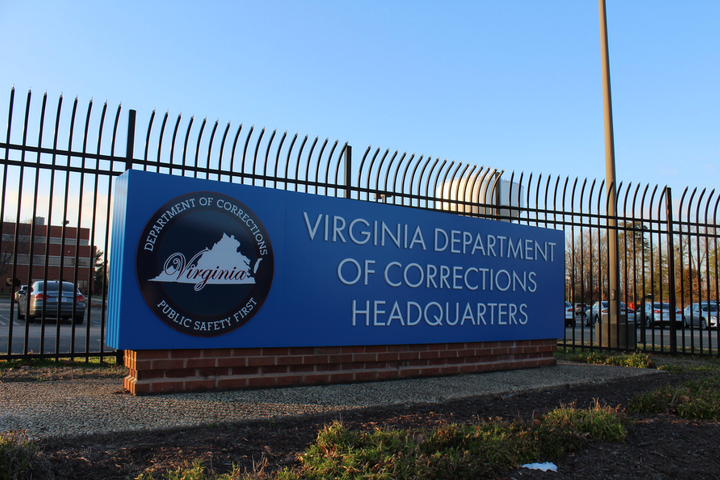A Presumption Of Secrecy: Defying Sunshine In Government

In 2017, Bloomberg reporter Jason Leopold submitted a Freedom of Information request for “photographed copies of all artwork created by Guantanamo detainees.”
Leopold waited about five years before United States Southern Command, or SOUTHCOM, fulfilled the request. The joint command removed portions of hundreds of paintings, invoking an exemption for protecting “law enforcement techniques.”
“When prisoners' art could potentially disclose military secrets, we're well through the looking glass,” declared the Electronic Frontier Foundation (EFF) and MuckRock.
This is one of several examples of agencies abusing the United States government’s secrecy system, which the organizations—in partnership with the Association of Alternative Newsmedia—compiled for 2023’s Sunshine Week (March 12-18).
Sunshine Week is supposed to be a celebration of the Freedom of Information Act (FOIA) and access to public records, yet it is also a moment for journalists, transparency advocates, and press freedom organizations to reflect on the state of open government.
Nearly every year the backlog for FOIA requests becomes worse. Government Executive reported, “Federal agencies reached a record high of 928,353 information requests in fiscal 2022, and processed a record high of 878,420, according to recently released statistics from the Justice Department. Yet despite the high number of requests processed, the backlog of pending requests increased by 34%.”
The Justice Department issued “new” FOIA guidelines that encourage agencies to apply a “presumption of openness” to requests and “consider all disclosure determinations with transparency in mind.” It recommends that records “be reviewed with an eye toward determining what can be disclosed, rather than what can be withheld.”
Like Attorney General Merrick Garland said in 2022, “[I]n case of doubt, openness should prevail.”
However, even the Obama administration, which had an abysmal record on transparency, issued similar calls for a “presumption of openness.” What Garland said in 2022 is nearly identical to what Obama said: “In the face of doubt, openness prevails.”
In 2009, Attorney General Eric Holder maintained the Justice Department would only defend a denial of a FOIA request in court if the agency reasonably foresaw that “disclosure would harm an interest protected by one of the statutory exemptions” or if disclosure was “prohibited by law.”
But given how officials continued to fight the release of secret legal opinions, it is clear the guidance was flouted.
Secret Law & 'Glomar' Responses
The Knight First Amendment Institute represents the Campaign for Accountability in a FOIA lawsuit that aims to ensure that the Justice Department’s Office of Legal Counsel releases all “secret legal opinions” proactively to the public. These opinions may involve warrantless surveillance, detainee abuse and torture, or other matters related to executive power.
Several opinions have been shared with the Knight Institute over the past year, however, the Justice Department remains resistant to the idea that legal opinions or interpretations that “have the force or effect of law” should be automatically published.
A “Glomar” response is when an agency replies to a FOIA request and asserts that it can neither confirm nor deny the existence of particular records. The Reporters Committee for Freedom of the Press (RCFP) tried to obtain data on Glomar responses through a FOIA request but had to sue to force disclosure of the information.
RCFP senior staff attorney Adam Marshall shared, in fiscal year 2021, the NSA “sent 619 Glomar responses.” Forty-one percent of the time the NSA issued a Glomar in order to help the agency stymie a request.
Furthermore, Just Security points out that even as the Global War On Terrorism fizzles, the “full list of groups and individuals covered” by a 2001 resolution that authorized the use of military force is still classified. President Donald Trump classified information, which President Barack Obama disclosed during the final months that he was in office, and President Joe Biden has not reversed what Trump did.
The Biden administration, according to Just Security, also has kept the policy framework that governs “direct action,” such as drone strikes, classified. While the Obama administration put out a “fact sheet” on the “playbook” for drone strikes, Biden has released nothing.

Covering Up Water Contamination From the Navy's Red Hill Fuel Storage Complex
Another example of secrecy abuse involves the Pentagon and the U.S. Navy’s Red Hill fuel storage complex. In 2021, thousands of gallons of fuel leaked and contaminated drinking water in Hawaii. Honolulu Civil Beat reported that communities, “including the Aliamanu Military Reservation, the Pearl Harbor Peninsula, Ford Island, and Iroquois Point,” were all impacted.
The military has known for many years that the tanks, which were constructed during World War II, are corroding and that the complex should be shut down to protect public health and the water supply.
Civil Beat reporter Christina Jedra shared, “I filed a number of requests regarding the World War II-era facility both before and after thousands of Pearl Harbor-area residents drank fuel-tainted water in 2021. But none of the Red Hill-related requests I’ve submitted to the military have been fulfilled.”
“A FOIA officer told me that the military had started pulling emails and redacting them. And then all communication stopped,” Jedra added. “I followed up several times, but I never heard from that person again.”
“The lack of response to those requests was frustrating at the time but stings all the more now that the Navy’s failures at the facility have upended so many people’s lives.”
“What if those emails revealed that top Navy officials privately expressed safety concerns about Red Hill that they weren’t willing to reveal publicly? What if the fuel needs assessment showed the Navy was hanging onto Red Hill less for necessity and more as a point of pride in its history and engineering? We may never know,” Jedra concluded.
The International Refugee Assistance Project (IRAP) submitted FOIA requests to Customs and Border Protection (CBP) for documents related to “Migrant Protection Protocols,” which is also known as the “Remain in Mexico” policy. CBP did not respond substantively to the request, which meant IRAP had no choice but to sue for the records.
Similarly, the Center for Constitutional Rights (CCR) filed a FOIA request in April 2021 for records on the Biden administration’s policy for “how, whether, and when it may send migrants back into areas of conflict.”
CCR has not received any documents on the policy around “death flights,” but it has obtained information that shows officials have defied “court orders against deporting Black migrants,” even when officials are concerned about “unjust treatment."
At The State Level
When it comes to individual states, there are a few developments that stand out. The Associated Press reported that Florida Governor Ron DeSantis has “claimed an executive right to keep key government records secret. He's also seeking to weaken a nearly 60-year-old national legal precedent protecting journalists and others who publish critical comments about public figures.”
Dozens of bills have been submitted by lawmakers to make it easier to censor and withhold records from the public.
“Television station WKMG reported [in February] that public records requests to some state agencies were being routed for review to the governor's office, sometimes delaying their release by weeks or months,” AP noted.
Michigan is “one of only two states that fully exempt lawmakers and the governor’s office from public requests for documents,” according to the Detroit News. “Emails about the handling of important matters like the COVID-19 pandemic and the attempt to overturn the 2020 presidential election can be kept secret permanently.”
Detroit News conducted an investigation and found when lawmakers leave office “their communications, no matter how historically significant, can be quickly destroyed.” Lawmakers are allowed to determine whether to turn their records over to the state’s archivist for preservation.
In Los Angeles, the Stop LAPD Spying Coalition learned that LA police were spying on them. They submitted a records request, yet according to EFF and MuckRock, the LAPD’s query “resulted in a file(s) that exceeds the maximum gigabyte that our system would allow [us] to export; therefore, we are unable to search for and identify emails responsive to your request.”
The Stop LAPD Spying Coalition was informed that they had to “narrow their request” if they wanted records. Essentially, the police department’s response was “we talk about you too much to tell you how much we've talked about you,” which “would be flattering if it wasn't both creepy and aggravating.”

Returning to the U.S. government, Director of National Intelligence Avril Haines delivered a speech on January 27 at the Lyndon B. Johnson Library as part of a conference that was co-sponsored by the National Archives’ Public Interest Declassification Board. The board advises U.S. presidents on classification and declassification policy.
Haines acknowledged the problem of overclassification has been recognized in the U.S. government for decades. She said, “Overclassification undermines critical democratic objectives, such as increasing transparency to promote an informed citizenry and greater accountability.”
Yet Haines sent a letter on overclassification to Democratic Senator Ron Wyden and Republican Senator Jerry Moran in January 2022. It had an attachment on “declassification efforts” at U.S. intelligence agencies.
The version of the attachment [PDF] released to the public censored the amount of funds spent each year by the Central Intelligence Agency (CIA), National Security Agency (NSA), Defense Intelligence Agency (DIA), National Geospatial-Intelligence Agency (NGA), and the Office of the Director for National Intelligence (ODNI), which Haines oversees.
If the public is not allowed to know how much is spent by the agencies most guilty of hiding records, how can we even begin to believe the government is taking overclassification seriously?
Matthew Connelly, author of the recently released book The Declassification Engine: What History Reveals About America’s Top Secrets, calls the amalgamation of opaque agencies the "dark state." The term refers to what is “not visible to outside observers” and how “state secrecy has been used to cover up some of the worst chapters” in American history.
During an era where nearly everyone in power easily escapes accountability, the crisis grows exponentially worse as the dark state abuses secrecy and keeps the public from knowing what is done in their name.




Comments ()